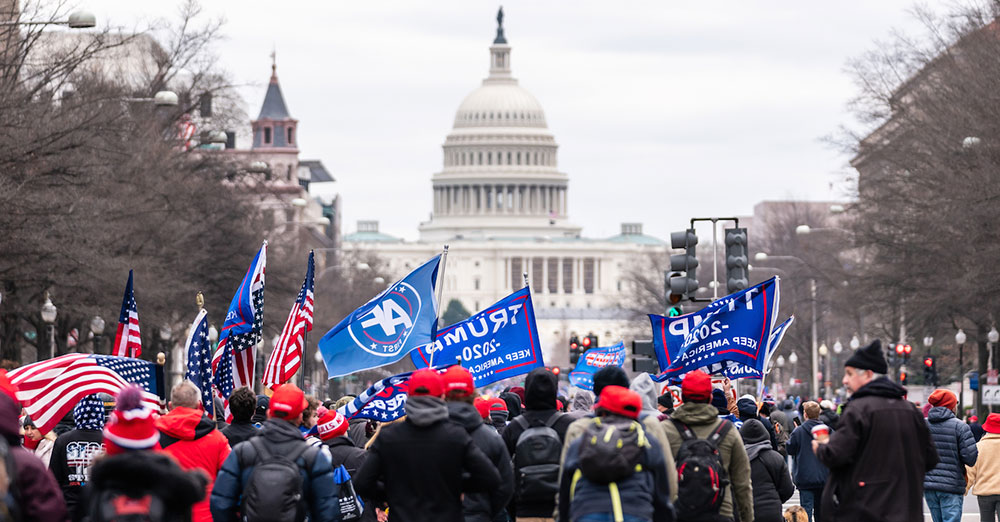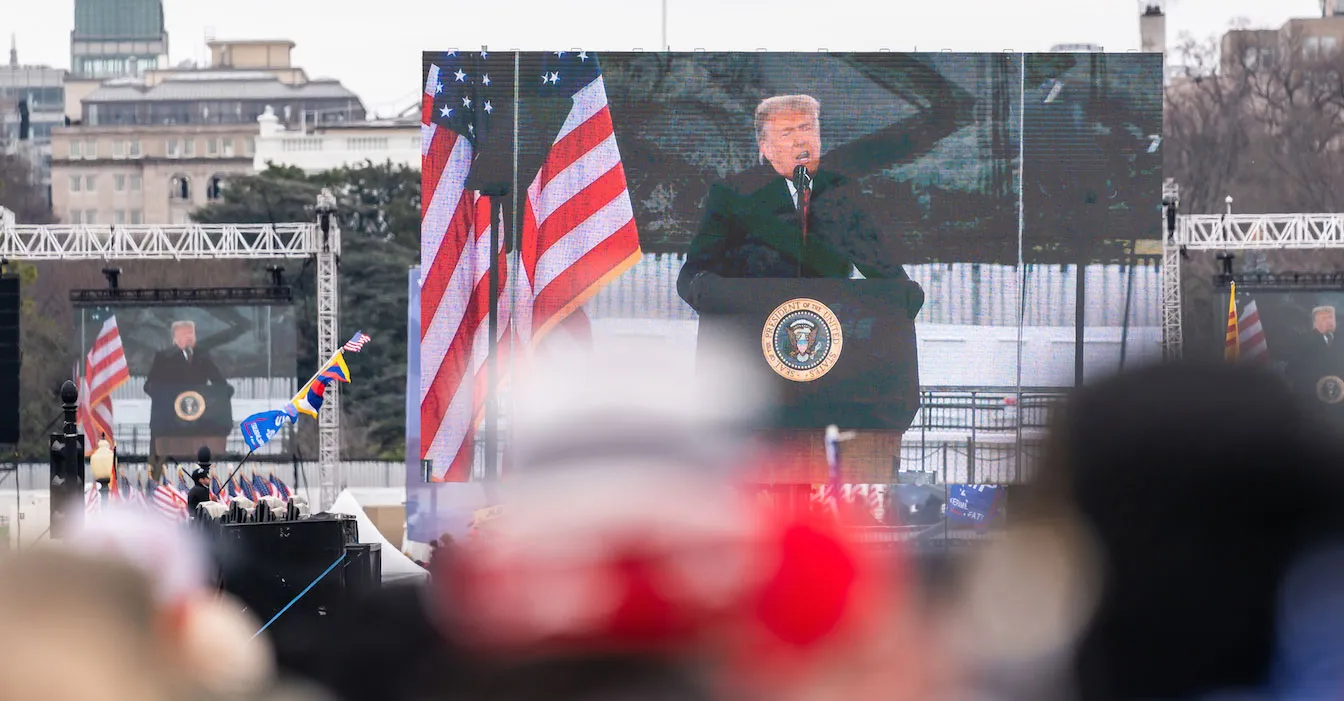The crux of the matter is who occupies the White House.
The person who does is in the best position to evaluate what executive branch records should be disclosed, which means that President Biden’s decision to share with Congress the previous administration’s documents on events leading up to a Jan. 6 assault on the U.S. Capitol outweighs former President Donald Trump’s desire to withhold them, a federal judge ruled late Tuesday.
Trump, who argued for months that he lost the 2020 presidential race by 7 million votes because it was rigged, had argued in a suit in U.S. District Court in Washington, D.C., that the doctrine of executive privilege gave him the right to block the National Archives from releasing the Jan. 6 records, sought by a Congressional investigative committee led by U.S. Rep. Bennie Thompson, a Mississippi Democrat.
Trump’s claim appears to be based on the idea “that his executive power “exists in perpetuity,” Judge Tanya S. Chutkan wrote. “But presidents are not kings, and plaintiff is not president. He retains the right to assert that his records are privileged, but the incumbent president ‘is not constitutionally obliged to honor that assertion.’”
Chutkan’s decision, while not unexpected, dealt the second blow to Trump’s efforts to impede Congress’s examination of the Jan. 6 attack in less than a day. Just hours earlier, Thompson’s committee said it had subpoenaed records and testimony from 10 more people, including former Press Secretary Kayleigh McEnany and former White House adviser Steven Miller.
But the former president, who has long characterized himself as a fighter, refused to give up.
“The battle to defend executive privilege for presidents past, present and future – from its outset – was destined to be decided by the appellate courts,” Taylor Budowich, a spokesman for Trump, said on Twitter.
The 45th president “remains committed to defending the constitution and the office of the presidency and will be seeing this process through,” he added.
Trump’s attorney, Jesse Binnall, whose previous request that Chutkan stay any decision against his client until a higher court could review it was denied, filed a notice of appeal to the U.S. Circuit Court of Appeals for the D.C. Circuit the same day. Without an injunction, the National Archives may release some of the records as soon as Nov. 12, following the Veterans Day holiday.
The former president’s complaint initially characterized the records request from the U.S. House Select Committee to Investigate the January 6th Attack on the U.S. Capitol, as “nothing less than a vexatious, illegal fishing expedition” and said Biden’s refusal to uphold Trump’s claim was “a political ploy to accommodate his partisan allies.”

Supporters of then-President Donald Trump march toward the U.S. Capitol on Jan. 6. The resulting attack would disrupt certification of the 2020 election results and leave seven people dead.
The attack disrupted the certification of President Biden’s electoral college victory, with 306 votes compared to Trump’s 232, forcing lawmakers and then-Vice President Mike Pence to flee as rioters forced their way into both the House and Senate chambers. Seven people died as a result.
Nonetheless, the committee’s request, which sought all records related to the assault, was overly broad, Trump maintained.
It included all documents and communications related to Trump’s Jan. 6 remarks to a crowd of more than 25,000 just before the throng marched on the Capitol as well as records related to his prepared and actual remarks from Nov. 3, 2020 – Election Day – through Jan. 20, when Biden was inaugurated.
“The notion that Congress is somehow entitled to ask for and review any and all private conversations, remarks or drafts of public statements considered by the president of the United States and his close advisors, without limitations on, among other things, subject matter, would destroy the very fabric of our constitutional separation of powers,” Trump argued in the complaint.
The right to assert executive privilege, however, is vested in the executive branch, Chutkan said in her ruling, citing the Supreme Court’s 7-2 decision in Nixon v. GSA, in which former President Richard Nixon fought to prevent the federal government from taking custody of tape recordings made during his administration.
The case was filed in 1974, shortly after Nixon resigned midway through his second term, forestalling impeachment over his administration’s actions related to a break-in at the Watergate headquarters of the Democratic National Committee.
Trump “does not acknowledge the deference owed to the incumbent president’s judgment,” Chutkan explained in a memorandum detailing the basis of her decision. “Plaintiff is no longer situated to protect executive branch interests with ‘the information and attendant duty of executing the laws in the light of current facts and circumstances.’”
She also brushed aside Trump’s complaint that Congress had no right to the records it sought, its investigative powers being limited to those needed to develop and pass legislation and no specific bill having been cited.
“Congress need not – and usually does not – identify specific legislation within the context of a request for documents or testimony, nor must it do so,” she wrote.
“The court has no difficulty discerning multiple subjects on which legislation ‘could be had’ from the Select Committee’s requests,” Chutkan added. “Some examples include enacting or amending criminal laws to deter and punish violent conduct targeted at the institutions of democracy” or passing laws for future enforcement of the Fourteenth Amendment against “any member of Congress or officer of the United States who engaged in ‘insurrection or rebellion,’ or gave ‘aid or comfort to the enemies thereof.’”


